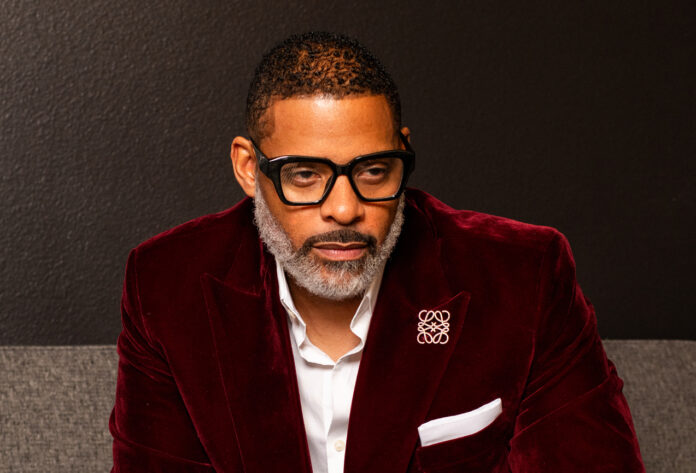Black men have long carried the weight of silence, battling unseen struggles while navigating the pressures of resilience and strength. Rod Warner, a dedicated psychotherapist with offices in Texas, is changing that narrative. With a deep commitment to mental health and cultural healing, Warner specializes in providing Black men with a space to process trauma, redefine masculinity, and embrace self-care without stigma. Through his work, he challenges societal norms, fosters open dialogue, and empowers men to reclaim their emotional wellbeing. His mission is clear: healing starts with conversation, and true strength lies in vulnerability.
Warner spoke at length with TNJ contributor Taroue Brooks about his mission.
Brooks: What inspired you to pursue a career in clinical mental health therapy?
Warner: I have always had a deep desire to help others navigate their personal struggles with mental health. My fascination with human behavior and the complexities of the mind further fueled my passion for this field.
Brooks: Why did you decide to focus on Black men and their mental health?
Warner: I chose to focus on Black men’s mental health because of the unique challenges we face in today’s society. There is often an expectation for us to be strong, self-reliant, and emotionally reserved, leaving little room to acknowledge our pain—whether voluntary or involuntary. With these societal and cultural pressures, many Black men struggle with expressing vulnerability. From a young age, we’re often taught that vulnerability is a weakness, which makes it difficult to acknowledge when we need help. I wanted to create a safe space where we can feel heard, understood, and supported by another man without fear of judgment or competition.
Brooks: What unique challenges do Black men face in acknowledging and addressing their mental health?
Warner: The stigma surrounding mental health among Black men varies across generations. Younger generations, such as Millennials and Gen Z, are more open to therapy and understand its value. However, Gen X often associates therapy with weakness and tends to believe in figuring things out independently. Baby Boomers, on the other hand, largely dismiss therapy altogether, relying instead on faith and the belief that prayer alone can resolve struggles. While some Baby Boomers do embrace therapy, they remain a small minority. These generational attitudes create barriers that make it difficult for many Black men to seek the help they need.
Brooks: What strategies or approaches have you found effective in encouraging Black men to seek counseling?
Warner: One of the most effective strategies is normalizing therapy by framing it as an act of strength rather than weakness. I emphasize that seeking help doesn’t mean something is “wrong” with you—it’s a step toward self-improvement and personal growth. Creating spaces where Black men can have honest conversations about mental health without judgment also helps break down resistance. Representation is key, too—seeing other Black men prioritize their mental wellbeing makes it more acceptable and accessible.
Brooks: Talk a little more about representation in mental health care.
Warner: Representation is crucial in dismantling the stigma surrounding therapy. When Black men see therapists who look like them and understand their lived experiences, it fosters trust and relatability. Many Black men hesitate to seek therapy because they fear being misunderstood or judged. Having Black male therapists in the field helps bridge that gap, making mental health care feel more accessible and culturally relevant.
Brooks: How do you create that safe space for Black men to open up about their mental health?
Warner: I prioritize building trust by meeting each client where they are, without judgment or pressure. It’s important to acknowledge the unique struggles Black men face and validate their experiences. I also make sure therapy feels like a conversation rather than an interrogation. My goal is to create a space where men feel heard, understood, and respected—where they can express their emotions without fear of being perceived as weak.
Brooks: How do you stay motivated, resilient in this field, especially in private practice?
Warner: My motivation comes from knowing that my work is making a real difference. Seeing Black men open up, heal, and grow keeps me going. I also practice self-care and prioritize my own mental wellbeing, whether that’s through therapy, meditation, or simply taking time to recharge. Surrounding myself with a strong support system—both personally and professionally—helps me stay grounded in this work.
Brooks: What impact would you like your work to have on the narrative about the mental health of Black men?
Warner: I want to shift the narrative from therapy being seen as a weakness to its being a powerful tool for growth. My hope is that more Black men feel empowered to seek help without shame or stigma. I also want to create lasting change in how we, as a community, talk about mental health—breaking generational cycles of silence and replacing them with open, honest conversations.
Brooks: What would you say to Black men who might be hesitant or reluctant to seek therapy?
Warner: I’d say to them that therapy isn’t about fixing something that’s broken—it’s about gaining tools to navigate life more effectively. It’s okay to not have all the answers, and it’s okay to need support. Seeking help is a sign of strength, not weakness. I encourage Black men to take that first step, even if it’s just having a conversation with someone they trust. The journey to healing starts with acknowledging that they deserve it.








